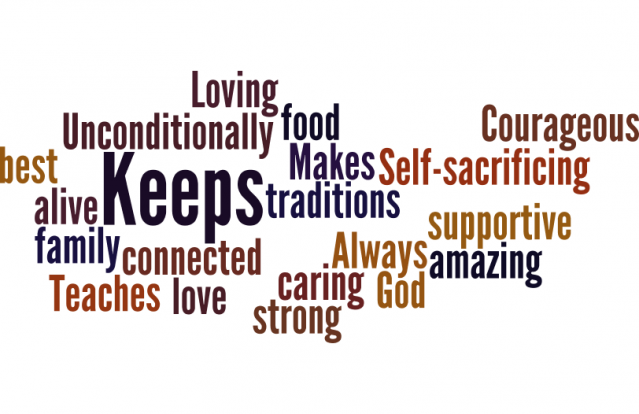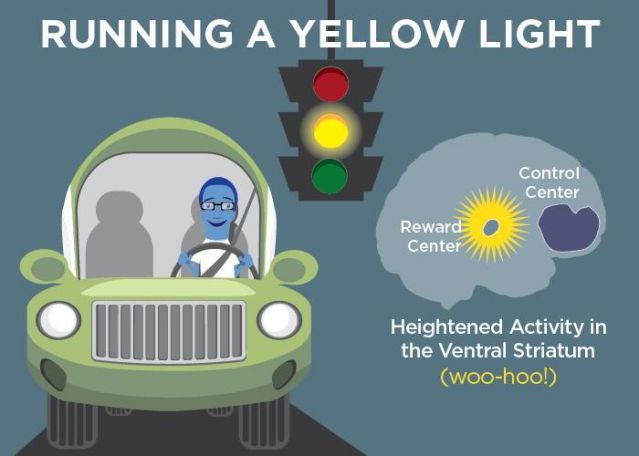
Gratitude
Mother Knows Best: Appreciating Mom for Helping Us Thrive
Express gratitude to mom. It will not only make her happy but make you better.
Posted May 9, 2015
Let’s take a minute to think about “Mom”. Mother’s day is upon us and without our moms, well – we really wouldn’t be anywhere right now. Take another minute to get real. Think about what you are REALLY thankful for when it comes to your Mom. Sure, your relationship might be challenging at times, but honestly who else can say that they have actually known you for your WHOLE life!?
Mother’s Day is a great time to appreciate what your mom means in your life and to TELL her! Research has shown that expressing gratitude increases your level of happiness, but it can also increase the level of joy that the recipient of your gratitude feels. Sounds like a win/win situation! Need some ideas to get your started? For mom’s sake, get started on this so you can give her some joy, and then I’ll tell you about a recent neuroscience study that found surprising ways moms truly help make us into better people.
Write a list of positive words that describe your mom. Try to look at her not only through your eyes, but the eyes of others around her. Then, head on over to this website http://www.wordle.net/ and create a Wordle about your mom. You can customize the colors, print it, mount it on some nice paper, pop it into a nice frame. Or how about making a list of genuine, from-the-heart reasons that you are thankful for your mom? Celebrate your mom's uniqueness and your relationship with her by making a card out of your Mother’s Day Wordle and following some of these suggestions I’ve made before for packing a powerful thank you:
https://www.psychologytoday.com/blog/making-grateful-kids/201411/stay-g…
I hope this got you started. I just made a Wordle with my kids, and we not only had fun but now we have something cool to share with my mom (and their grandma) for Mother's Day. Now on to the surprising research I promised. In a study just published in the journal Social Cognitive and Affective Neuroscience researchers at the University of Illinois hooked 14 year-olds up to an fMRI and involved them in a simulated driving task twice, once alone and another time under the watchful presence of their mothers. Previous research using this same task had found that peers significantly increased risky decision making, and these researchers wanted to see if mom would help teenagers put the brakes on such risky driving behavior.
Here’s what teens’ brains revealed during the driving task. When driving alone the adolescents found risky decisions more rewarding, as indicated by increased blood flow in the ventral striatum (the brain’s "reward center"), compared to when their mothers were present. So for instance, teenagers tended to ignore yellow stoplights and drive through intersections more when they were alone than when they were with their moms. Age 14 is considered a period in development when reward sensitivity and risk-taking peak, and yet the mere presence of mom made the risk of running the yellow light less rewarding for teen drivers so that they stepped on the brakes more than when they were alone! Surprisingly, moms reduced such risky decisions by 10%, from 55% when they were alone to 45% in mom’s presence.
But these researchers found that mom’s influence goes further than that. When teen drivers did put on the brakes their prefrontal cortex (the brain’s control center) became more active, but only when their mother was present, not when they were alone. So not only is risk taking less attractive thanks to mom, but adolescents are also reasoning through risky choices better and thinking ahead more. Therefore, the mere presence of mom appears to facilitate the strengthening of self-regulation skills, which research has long found to be critical to success and happiness in life.
And now for the clincher. You might be asking yourself, well does mom have to always be present for such effects to occur? Well we’ve found in our longitudinal research that adolescents who developed gratitude right around this age (from 12 to 16 years) also exhibited about 10% less antisocial and delinquency behavior, compared to adolescents who stayed flat in their gratitude development. That is, teens who grew gratitude during this period also reported less risky behaviors, such as abusing alcohol or drugs, bullying or threatening others, getting in trouble at school. Moreover, these teens also had higher amounts of self-control and intentional self-regulation than their less grateful counterparts.
So whatever you do and whatever your relationship is with your mother or the mother figures in your life, I hope that you can find a way to honor the gifts that these moms have given you -- be they resilience, courage, support or love. Because one thing is for sure, gratitude is not just important because it’s bundled up with all these gifts, but also because practicing and developing gratitude puts us on our best path in life, just like mom does.
For more ideas on living and extending gratitude to the young people in your life purchase Making Grateful Kids at:
Copyright Giacomo Bono, Ph.D. 2015
References:
Bono, G., & Froh, J. J. (2014, April). Gratitude’s role in prosocial behavior and well-being in adolescents over time. In S. Lyubomirsky (chair), Gratitude and prosocial behavior: Other-oriented paths to greater happiness. Presidential symposium presented at the Western Psychological Association Annual Convention, Portland, OR.
Telzer, E. H., Ichien, N. T., & Qu, Y. (2015). Mothers know best: redirecting adolescent reward sensitivity toward safe behavior during risk taking. Social cognitive and affective neuroscience, nsv026.
University of Illinois at Urbana-Champaign. (2015, April 27). "Study: This is your teen's brain behind the wheel ." Medical News Today.





